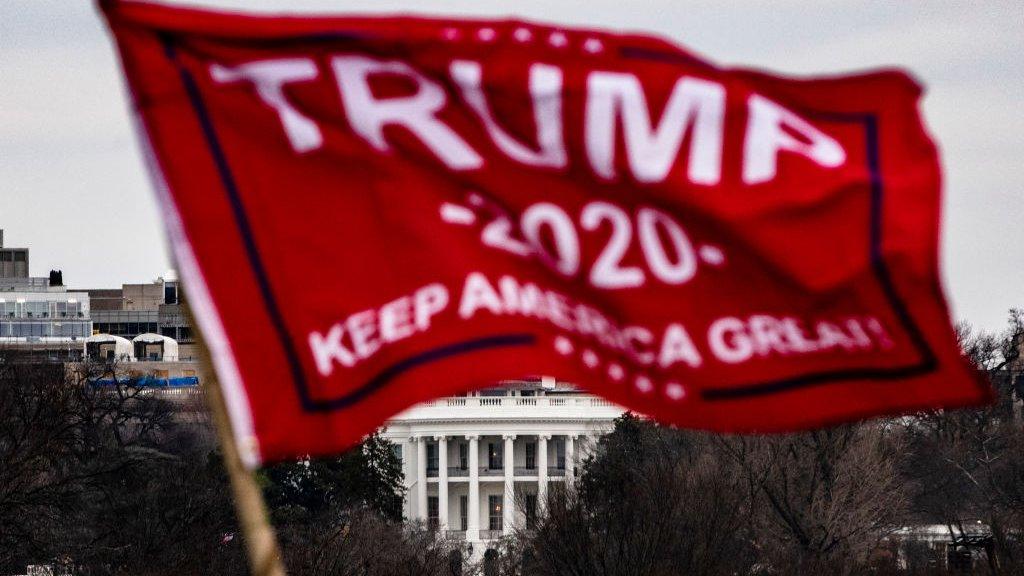Bill Barr says Donald Trump 'knew well he lost the election'
- Published
Watch: 'This indictment is staggering' - a 90-second explainer
Former US attorney general Bill Barr spoke out against Donald Trump ahead of his court appearance for allegedly plotting to overturn his election defeat in 2020.
Mr Barr, who was appointed by the former president, said that Mr Trump "knew well he lost the election".
Mr Trump is accused by federal prosecutors of lying about mass voter fraud and pressing officials to change results to keep him in power.
He has entered not guilty pleas.
The 77-year-old Republican, who is running for election again, appeared in court in Washington on Thursday afternoon. He has denounced the charges as politically motivated.
Trump lawyer John Lauro has called the indictment an attack on free speech and said: "There's nothing more protected under the First Amendment [the right to free speech] than political speech."
But Mr Barr, who quit the top job in the US legal system shortly after Joe Biden won that election in November 2020, said free speech is not a valid defence.
"They are not attacking his First Amendment right. He can say whatever he wants, he can even lie. He can even tell people that the election was stolen when he knew better," Mr Barr told CNN.
"But that does not protect you from entering into a conspiracy."
By saying his former boss knew he had lost the election, Mr Barr is undermining another plank of Mr Trump's defence which is that he was not defrauding the American people because he always believed he had won.
He added that the former president's alleged actions, as outlined in the indictment, are "nauseating" and "despicable".
In this latest indictment, Mr Trump faces four counts, including conspiracy to defraud the US, obstructing an official proceeding and conspiracy against the rights of citizens to have their votes counted.
He has already been charged in two other cases: with mishandling classified files and falsifying business records to cover up a hush-money payment to a porn star.
On the eve of the arraignment, Mr Trump slammed the case as proof of the "corruption, scandal, and failure" of the US under Joe Biden's presidency.
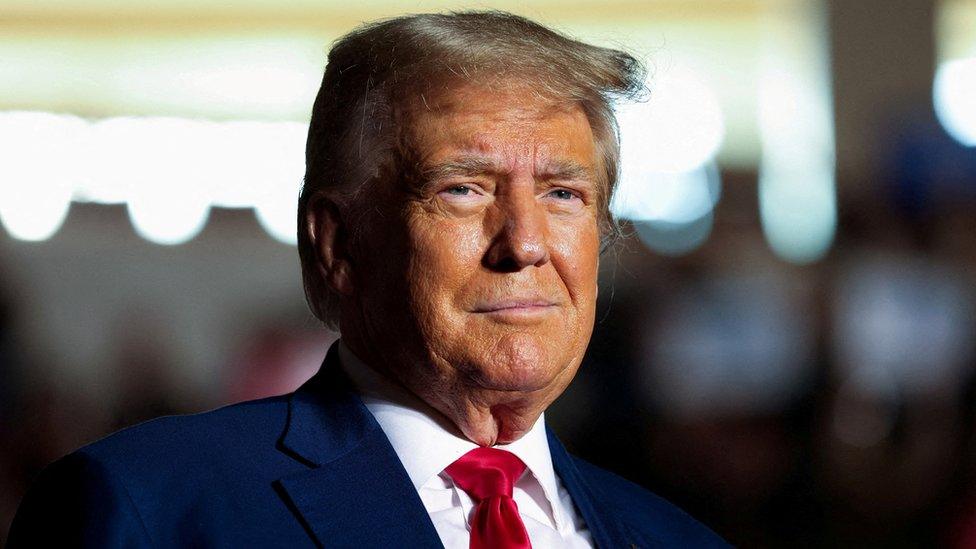
Donald Trump at a campaign rally in Erie, Pennsylvania, at the weekend
Prior to Thursday, the former president had visited Washington DC only once since leaving the White House.
Mr Trump appeared before Magistrate Judge Moxila Upadhyaya, while another judge, Tanya Chutkan, will handle the criminal trial.
The indictment came at the end of an investigation into events surrounding the 6 January 2021 riot at the US Capitol.
It focused on Mr Trump's actions in the two-month period between his loss to Joe Biden and the riot in Washington DC, where his supporters stormed Congress as lawmakers certified the Democrat's victory.
The man leading the inquiry, special counsel Jack Smith, did not charge the former president with inciting the mob that day but he said the violence had been "fuelled" by his lies.
The court document accuses Mr Trump of a "conspiracy to impair, obstruct, and defeat the federal government function through dishonesty, fraud and deceit".
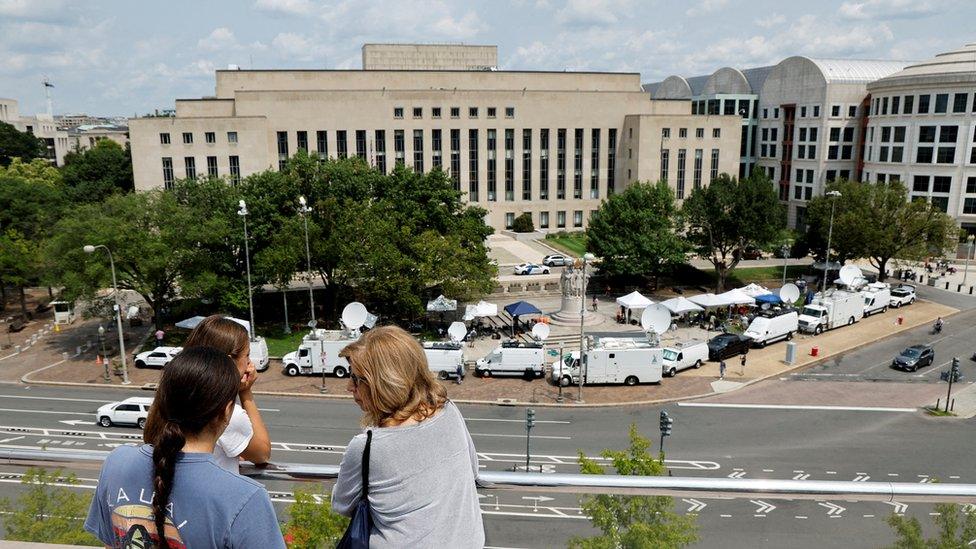
News trucks are parked around the courthouse
Mr Trump is currently the clear front-runner in the Republican Party's contest to pick its next presidential candidate.
Congressional Republicans have been rallying round him, arguing that the latest indictment shows the US has become a "banana republic" and echoing the former president's claim that the prosecutions amount to election interference.
Mr Trump's former vice-president, Mike Pence, appears in the indictment more than 100 times.
The document says he was being repeatedly pressured by his boss to reject the true electoral votes in his ceremonial role to certify the election.
He said on Wednesday that he had "done his duty" by not bowing to Mr Trump's demands.
"Sadly the president was surrounded by a group of crackpot lawyers that kept telling him what his itching ears wanted to hear," he said. "The president ultimately continued to demand that I choose him over the Constitution."
The 45-page election-related indictment against Mr Trump is based partly on contemporaneous notes that Mr Pence kept of their conversations in the days leading up to the US Capitol riot.
- Published2 August 2023
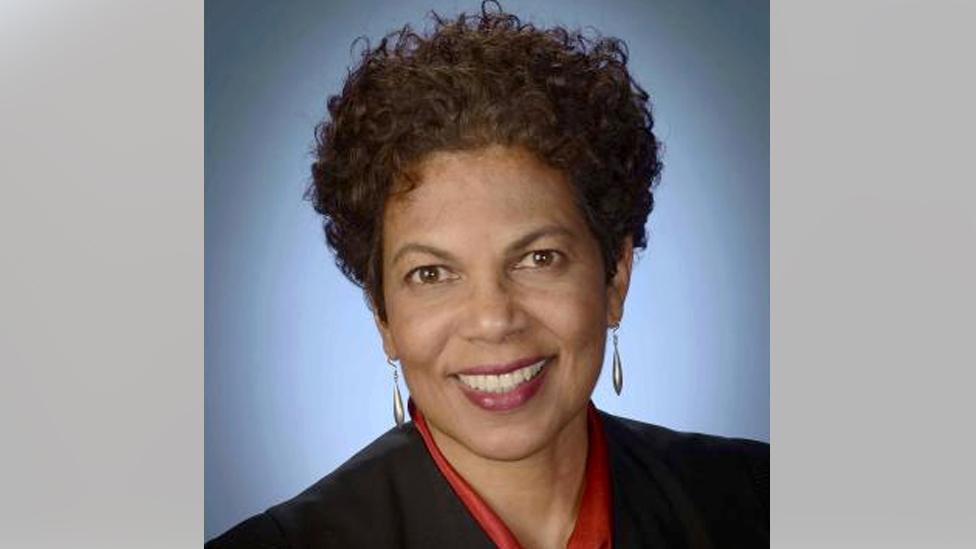
- Published2 August 2023
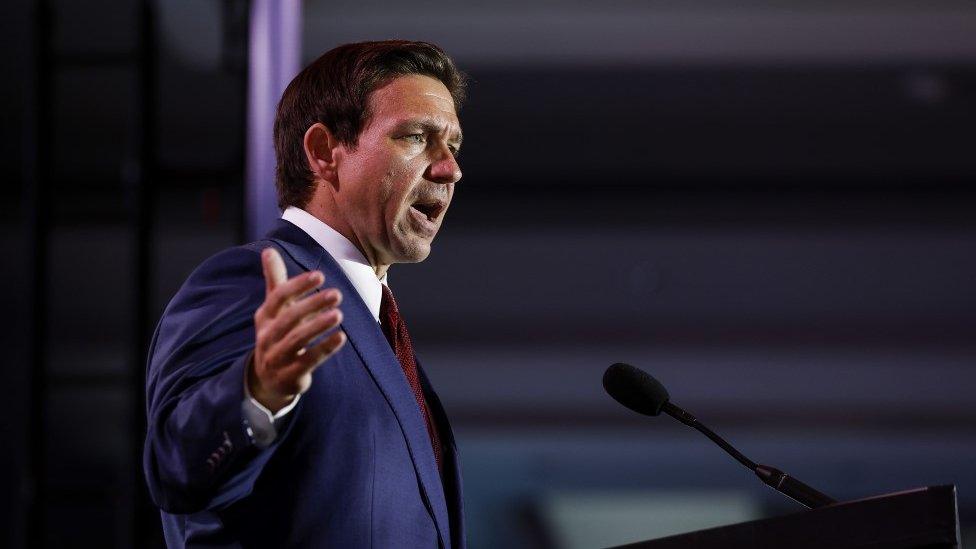
- Published2 August 2023
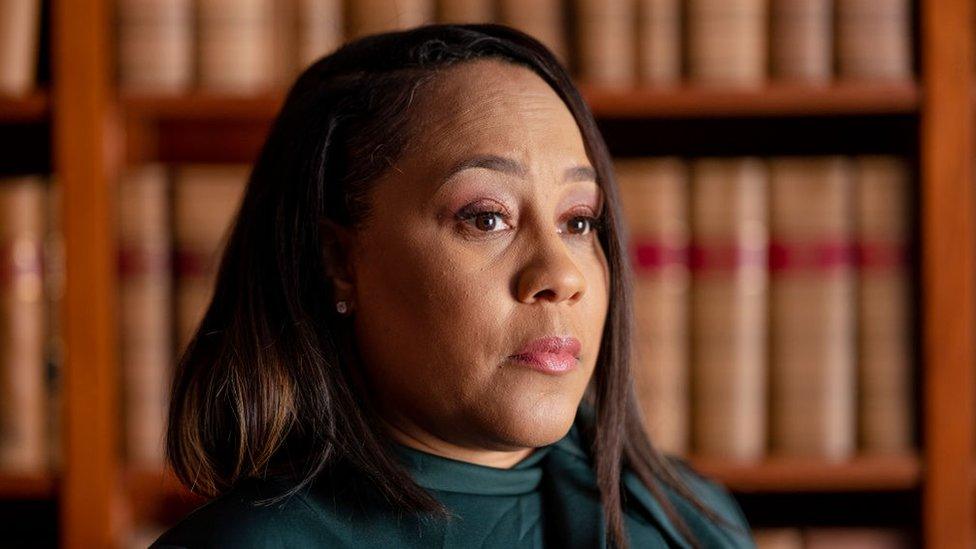
- Published28 August 2024
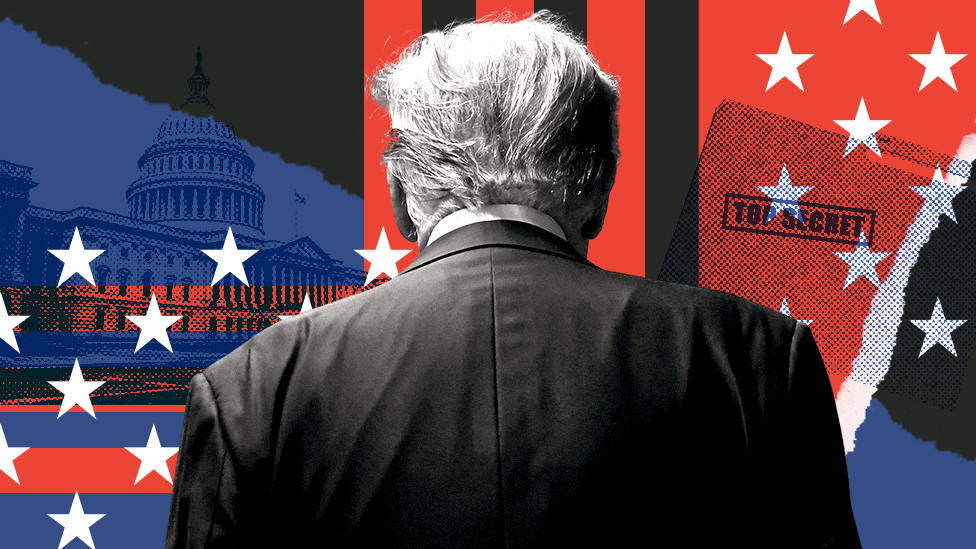
- Published2 August 2023
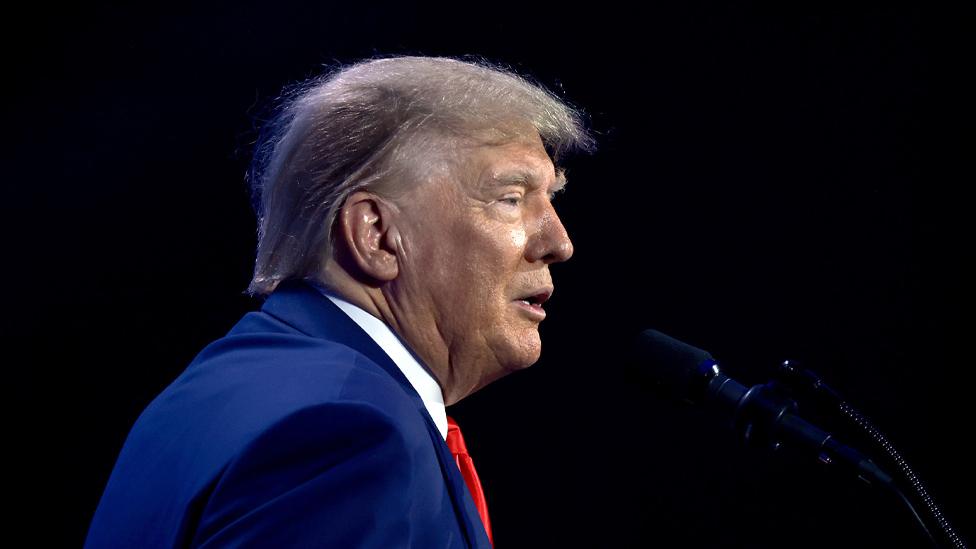
- Published15 July 2024
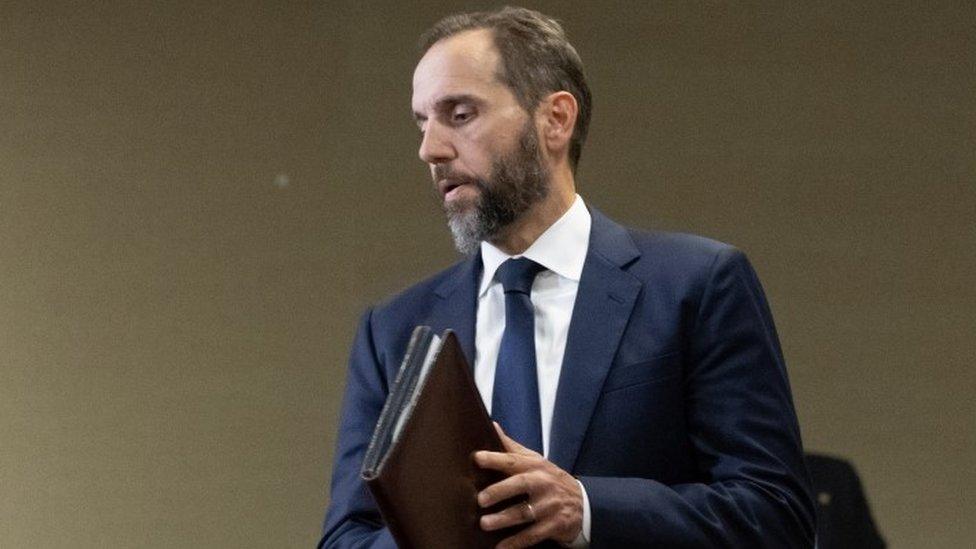
- Published2 August 2023
- Published2 August 2023
